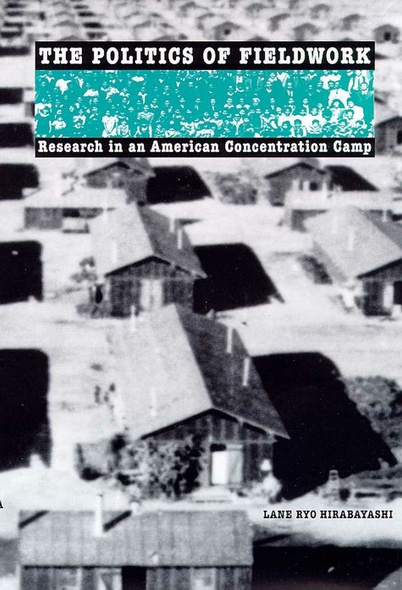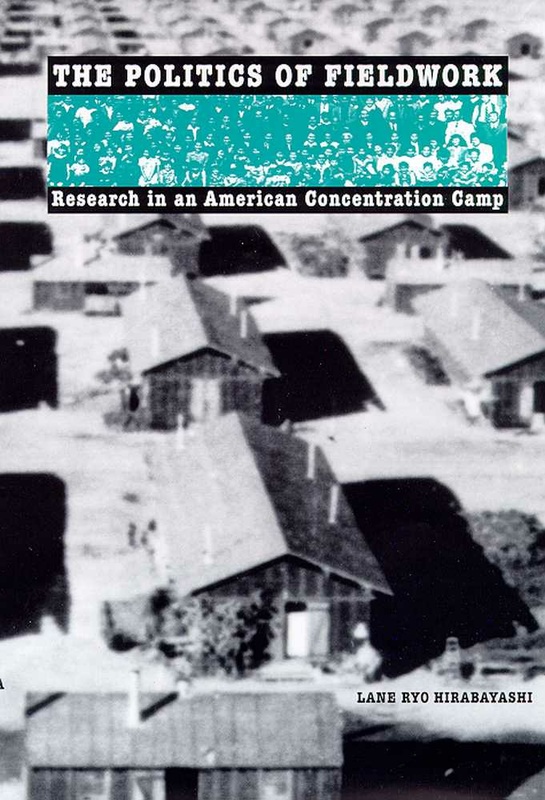The Politics of Fieldwork
Research in an American Concentration Camp
The University of Arizona Press
During World War II, over thirty American anthropologists participated in empirical and applied research on more than 110,000 Japanese Americans subjected to mass removal and incarceration by the federal government. While that experience has been widely discussed, what has received little critical attention are the experiences of the Japanese and Japanese American field assistants who conducted extensive research within the camps. How did these field researchers carry out data collection in American-style concentration camps? What kinds of constraints and pressures did they face? How did they respond to practical, ethical, and political challenges?
In addressing these questions, author Lane Hirabayashi examines the case of the late Dr. Tamie Tsuchiyama. At the time an advanced doctoral student in anthropology, Tsuchiyama was hired in 1942 to conduct ethnographic fieldwork for the University of California at Berkeley's Japanese American Evacuation and Resettlement Study. Drawing from personal letters, ethnographic fieldnotes, reports, interviews, and other archival sources, The Politics of Fieldwork describes Tsuchiyama's experiences as a researcher at Poston, Arizona—a.k.a. the Colorado River Relocation Center. The book relates the daily life, fieldwork methodology, and politics of the residents and researchers at the Poston camp, as well as providing insight into the pressures that led to Tsuchiyama's ultimate resignation, in protest, from the JERS project in 1945.
Facilitating the critical analysis of Tsuchiyama's role in the JERS research are questions regarding the relationships between Japanese American research and the nature of "colonial science" that merit discussion in contemporary field research. A multidisciplinary synthesis of anthropological, historical, and ethnic studies perspectives, The Politics of Fieldwork is rich with lessons about the ethics and politics of ethnographic fieldwork.
In addressing these questions, author Lane Hirabayashi examines the case of the late Dr. Tamie Tsuchiyama. At the time an advanced doctoral student in anthropology, Tsuchiyama was hired in 1942 to conduct ethnographic fieldwork for the University of California at Berkeley's Japanese American Evacuation and Resettlement Study. Drawing from personal letters, ethnographic fieldnotes, reports, interviews, and other archival sources, The Politics of Fieldwork describes Tsuchiyama's experiences as a researcher at Poston, Arizona—a.k.a. the Colorado River Relocation Center. The book relates the daily life, fieldwork methodology, and politics of the residents and researchers at the Poston camp, as well as providing insight into the pressures that led to Tsuchiyama's ultimate resignation, in protest, from the JERS project in 1945.
Facilitating the critical analysis of Tsuchiyama's role in the JERS research are questions regarding the relationships between Japanese American research and the nature of "colonial science" that merit discussion in contemporary field research. A multidisciplinary synthesis of anthropological, historical, and ethnic studies perspectives, The Politics of Fieldwork is rich with lessons about the ethics and politics of ethnographic fieldwork.
Frank discussion on the ethics and politics of fieldwork and the appropriation of the scholarship performed by students of color, especially women. Hirabayashi has opened a valuable path to this extremely important but often neglected issue.' —American Ethnologist
'Illustrat[es] how the inequalities of race, gender and age between an investigator and assistants can be concealed in the name of science. . . . Hirabayashi brings a moral voice to how research should be conducted in academia-free of exploitation.' —Amerasia Journal
'Slices to the core of current debates in social science and challenges readers to reflect upon the politics of their academic endeavors. . . . compelling and insightful.' —Journal of Asian American Studies
Lane Ryo Hirabayashi, an anthropologist, is the George and Sakaye Aratani Professor of the Japanese American Internment, Redress & Community and chair of the Department of Asian American Studies at the University of California, Los Angeles.





